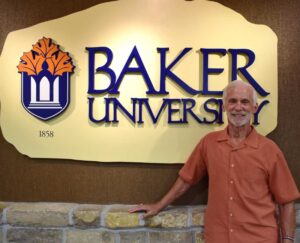The most recent US Census Bureau report identified some 109,000 centenarians, up from 65,00 since the last census. This 50% increase in Americans living to 100 and beyond is inspirational. My conversations with some of them have been very interesting. When I ask how they did it, responses have ranged from having the right spouse to never getting married and having an alcoholic beverage every day to abstaining from alcohol. The bottom line is that no one really knows why they have become exceptional. Anecdotal credit has been given to lifestyle habits, genetics, and a combination of the two. What we do know is those who cross life’s finish line last are winning the race.
While more are living longer, there is a stark contrast in America’s declining life expectancy. For the first time in recorded history, our average age at death has decreased to 76.1 years from 78.9 in 2014. It would be flippant to conclude the math is off or the decline is a cyclic pattern. While we can’t analyze the fountain of youth to explain why so many elders are extending the age range, medical science has long been able to accurately document why so many others are dying at an earlier age.
According to recent American Medical Association reports, the alarming life expectancy downturn is due to increasing heart disease followed by cancer and COVID-19, which accounted for 60% of the life expectancy decline. The data seems to suggest Americans have not heeded decades of medical advice known to better resist these maladies … lifestyle changes and vaccines. But there is a new killer that has increased fivefold in less than a decade… overdosing on fentanyl and heroin. At the same time, deaths attributed to opioids are decreasing. Even more concerning is the decline in our average life expectancy, which is found in the parameter of increasing deaths within the 25- to 54-year-old age group.
While census data and life expectancy are two significant health markers, others include infant mortality, maternal mortality, health screening rates, and health-related social determinants. While it won’t be a topic of this narrative, there is the independent vs. dependent quality of life debate that is more relevant with more of our states coming to grips with the “right to die” considerations. Harvard Medical School research demonstrated individuals and families with lower incomes, as well as those who encounter food insecurity and lack access to adequate medical care or health insurance, have much shorter life expectancies than the rest of the American population.
Washington Post journalists took a much deeper dive into the life expectancy decline by interviewing clinicians, patients, and researchers in addition to analyzing death records for five decades. Their conclusions were characterized as a failure in our country’s fundamental mission — keeping people alive. They concluded premature dying was an outcome of decades of health deterioration along with the failure of our health system to respond. Their findings confirm the Harvard research related to heart disease and cancer increases while adding diabetes and liver disease as increasing agents of death. The Post described this as an “epidemic of chronic illness” and documented our decline while peer countries continued to experience increasing life expectancies. As if this was not enough, America’s per capita death rate from Covid exceeded all other wealthy nations. The bottom line suggests our increasing mortality at a younger age has been building for many years due to America’s ever-increasing economic, political, and racial divides.
It’s no longer enough to lead a cheer encouraging myself and readers to eat healthy, exercise, and schedule regular medical exams. In doing so, we may be able to extend our expiration dates, but our concern must extend beyond the “me” viewpoint. Suppose there can be any hope to reverse the dramatic decline in life expectancy in our country. In that case, it will demand our involvement to stimulate actions by elected officials, public health leaders, and the media. Let’s get on with it.
_____________________________________________________________________________________________________
 Dr. Don Clardy is a tenured professor at Baker University with 40+ years in higher education and numerous academic publications. More recently, his writing interests have turned toward current, controversial issues to spark independent thinking by those who choose to read his narrative work.
Dr. Don Clardy is a tenured professor at Baker University with 40+ years in higher education and numerous academic publications. More recently, his writing interests have turned toward current, controversial issues to spark independent thinking by those who choose to read his narrative work.






